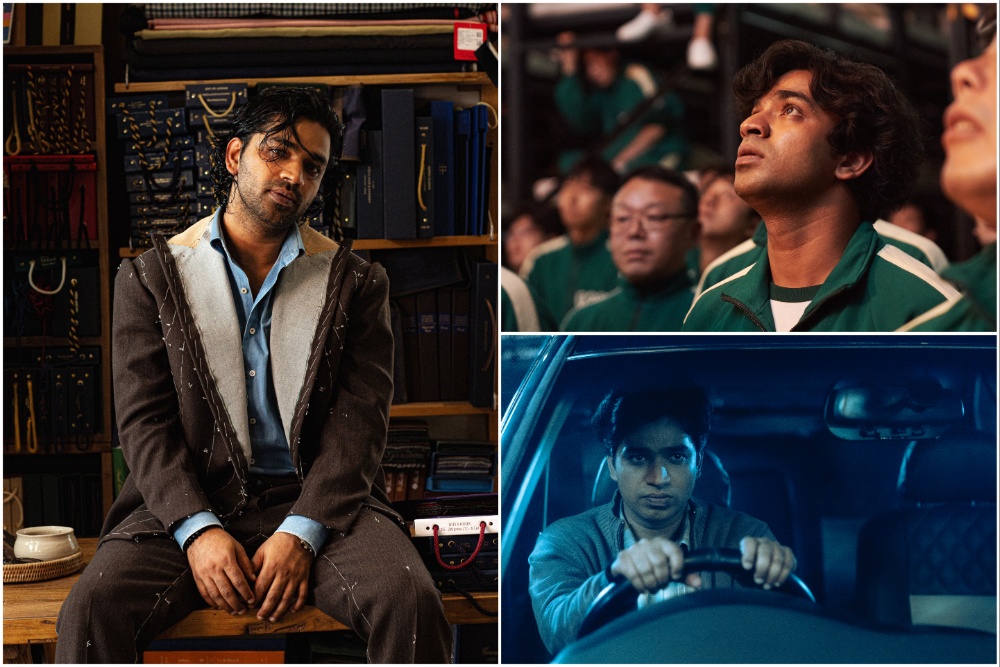Anupam Tripathi: Bridging cultures through cinema and TV
When Netflix’s “Squid Game” took the world by storm in 2021, it didn’t just captivate audiences; it also launched its cast into the global limelight. For Anupam Tripathi, the India-born, Korea-based actor who played Ali Abdul, this was a career-defining moment that has since spanned continents and industries.
A new chapter post “Squid Game”
“After ‘Squid Game,’ life has turned around a lot for me,” Tripathi shares. “Everybody knows me in the Korean industry now.” Following his breakout role, Tripathi took on the character of Prince Samir in the Korean drama King the Land, which further solidified his public recognition. “People remember me. They call me Ali. And sometimes after ‘King the Land,’ they started calling me Prince,” he notes.
Expanding horizons in India
Tripathi’s rising star isn’t confined to Korea. He recently appeared in the Netflix India series IC 814: The Kandahar Hijack, based on the real-life hijacking of an Indian Airlines flight in 1999. In this series, Tripathi portrays Ram Chandra Yadav, an operative of Indian intelligence service RAW in Kathmandu. “I couldn’t have asked for a better character to start with in India,” he says. “In ‘Squid Game,’ people saw me as naive or innocent. This character was totally opposite. It can show my different side as an actor to the world.”
Immersive preparation
To authentically portray Yadav, Tripathi delved deep into research, even visiting the Indian embassy in Korea to observe officials’ behavior. “I kept thinking about his way of looking at things, how he behaves, how he talks,” he explains. Yadav is described as a “delicate” character, balancing a normal exterior with a mind constantly working to protect his country’s interests. “It’s a very thin line,” Tripathi notes. “I cannot go too much. I cannot go too less.”
Working with legends
The opportunity to work with legendary Indian actors was a highlight for Tripathi. He recalls a memorable day on set with veterans like Naseeruddin Shah and Pankaj Kapur. “I saw that table where all the greats were sitting,” he says. “I was like, ‘What is happening?’” Director Anubhav Sinha introduced Tripathi, and he had a fruitful time discussing aspects of his craft with his seniors. “He’s a very joyful person,” Tripathi says of Sinha. “You feel like you’re doing it for something important.”
A unique position in the industry
Tripathi’s journey in the entertainment industry spans both Korea and India. He completed his master’s degree in acting in Korea while continuing to work on various projects. His unique position as an Indian in the Korean entertainment industry has opened doors for representation. “I feel blessed in a way, like I’m able to represent an Indian actor, Indian culture, and Korean culture,” Tripathi says. He’s been invited to speak at the Oxford Union and has served as a brand ambassador for Korean film festivals.
Future projects and aspirations
Looking ahead, Tripathi has several projects in the pipeline. Rhapsody for the Dead, where he plays one of the leading roles of a spirit exorcist, debuted earlier this year at Bucheon and is slated for release in Korea and five other Asian nations. He’s also involved in a U.K. short film as both an actor and executive producer. Another Korean drama is due to commence imminently. The actor is also fielding offers from India following the success of “IC 814.”
Tripathi’s goal is to continue being a bridge between the Korean and Indian entertainment industries while expanding his range as an actor. “I want to be called an Indian actor in Korea,” he says. “I feel so great that I’m representing India and foreign actors also.”
A vision for the future
He hopes his work will pave the way for more recognition of international actors in Korea’s entertainment industry. “I wish someday in all the Korean bigger awards, they will have a category for foreign actors also,” Tripathi says.
Anupam Tripathi’s journey is a testament to the power of cross-cultural representation in the entertainment industry. His roles in both Korean and Indian projects highlight the growing interconnectedness of global cinema and TV, offering a glimpse into a future where talent knows no borders.

 Italian
Italian






